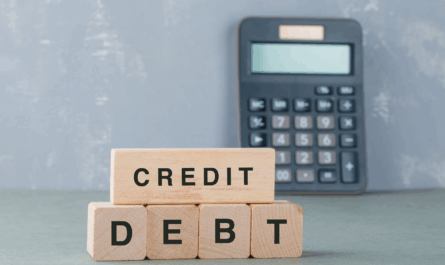In today’s world, having good creditworthiness is essential for financial well-being. But what exactly does creditworthiness mean, and how can you check and improve it? In this blog, we will delve into the concept of creditworthiness, explain how to assess it, and provide tips on how to enhance your creditworthiness.
What is Creditworthiness?
Creditworthiness refers to a person’s ability to repay borrowed money. It indicates the likelihood that an individual will honour their financial obligations, such as repaying loans or credit card balances, on time. Lenders, such as banks and credit card companies, use creditworthiness to evaluate the risk of lending money to an individual.
Are you looking to improve your creditworthiness and enhance your financial standing? Consider leveraging Airtel personal loans through Airtel Finance available on the Airtel Thanks App. With competitive interest rates, convenient EMI calculator tools, and instant personal loan approvals, Airtel personal loans can be a valuable tool in strengthening your credit score. Take the first step towards better creditworthiness by exploring Airtel personal loans today!
Also Read: Is It A Good Idea To Pre-Close A Personal Loan?
Why is Creditworthiness Important?
Having good creditworthiness opens doors to various financial opportunities. It can affect your ability to secure loans, credit cards, mortgages, and even rental agreements. A higher credit score, which reflects good creditworthiness, may also lead to better interest rates and more favourable terms on loans and credit products.
How to Check Your Creditworthiness
Obtain Your Credit Report: Start by obtaining a copy of your credit report from a credit reference agency. This report provides a comprehensive overview of your credit history, including details of your borrowing and repayment behaviour.
Check Your Credit Score: Your credit score is a numerical representation of your creditworthiness. Different credit reference agencies may use slightly different scoring models, but generally, a higher score indicates better creditworthiness.
Also Read: Co-Borrower Vs. Co-Signer: Which to Use On Your Loan?
Review Your Credit Report for Errors: Carefully review your credit report for any errors or inaccuracies that could negatively impact your creditworthiness. Dispute any incorrect information with the credit reference agency to have it rectified.

How to Improve Your Creditworthiness
Pay Your Bills on Time: Consistently paying your bills on time is one of the most effective ways to improve your creditworthiness. Late payments can significantly lower your credit score.
Reduce Your Debt: Aim to keep your credit card balances low and pay off any outstanding debts. Lowering your overall debt-to-income ratio can enhance your creditworthiness.
Build a Positive Credit History: Demonstrating responsible credit behaviour over time can boost your creditworthiness. This includes using credit responsibly, such as maintaining low credit card balances and avoiding opening multiple new credit accounts at once.
Limit Credit Applications: Applying for multiple credit products within a short period can signal financial instability to lenders. Be selective when applying for credit and only take on new credit when necessary.
Also Read: Difference between Unsubsidized and Subsidized Loans
FAQs
What is the meaning of creditworthiness?
Creditworthiness is a vital measure of an individual’s financial responsibility and ability to manage borrowed money. It reflects the likelihood that a person will repay debts on time. Lenders evaluate creditworthiness to determine the risk of lending money to an individual.
How is creditworthiness assessed by lenders?
Lenders assess creditworthiness by analysing various factors that provide insight into an individual’s financial behaviour. These factors include credit history, which details past borrowing and repayment activities, credit score, an overall numerical representation of creditworthiness, income level, debt-to-income ratio, and repayment behaviour, such as timely payments.
Can I check my creditworthiness for free?
Yes, individuals can access their creditworthiness by obtaining a free copy of their credit report from credit reference agencies. These reports offer a comprehensive overview of credit history and factors influencing creditworthiness. Additionally, some online platforms provide free credit score monitoring services, allowing individuals to track changes in their creditworthiness over time.
Does checking my creditworthiness affect my credit score?
Checking your own credit report or credit score does not impact your credit score negatively. When you access your credit information for personal review, it is considered a soft inquiry and does not have any adverse effects on your creditworthiness. It is essential to monitor your credit regularly to stay informed about your financial standing.
How long does it take to improve creditworthiness?
Improving creditworthiness is a gradual process that requires consistent effort and responsible financial habits. While the timeline for enhancing creditworthiness may vary for each individual, significant improvements can typically be seen over several months to years. By making timely bill payments, reducing debt levels, and maintaining positive credit behaviour, individuals can steadily improve their creditworthiness and enhance their financial prospects.
In conclusion, understanding creditworthiness is crucial for managing your financial health. By regularly checking your credit report, taking steps to improve your creditworthiness, and maintaining responsible credit behaviour, you can enhance your financial standing and access better financial opportunities. Remember, good creditworthiness is a key asset in today’s financial landscape.



